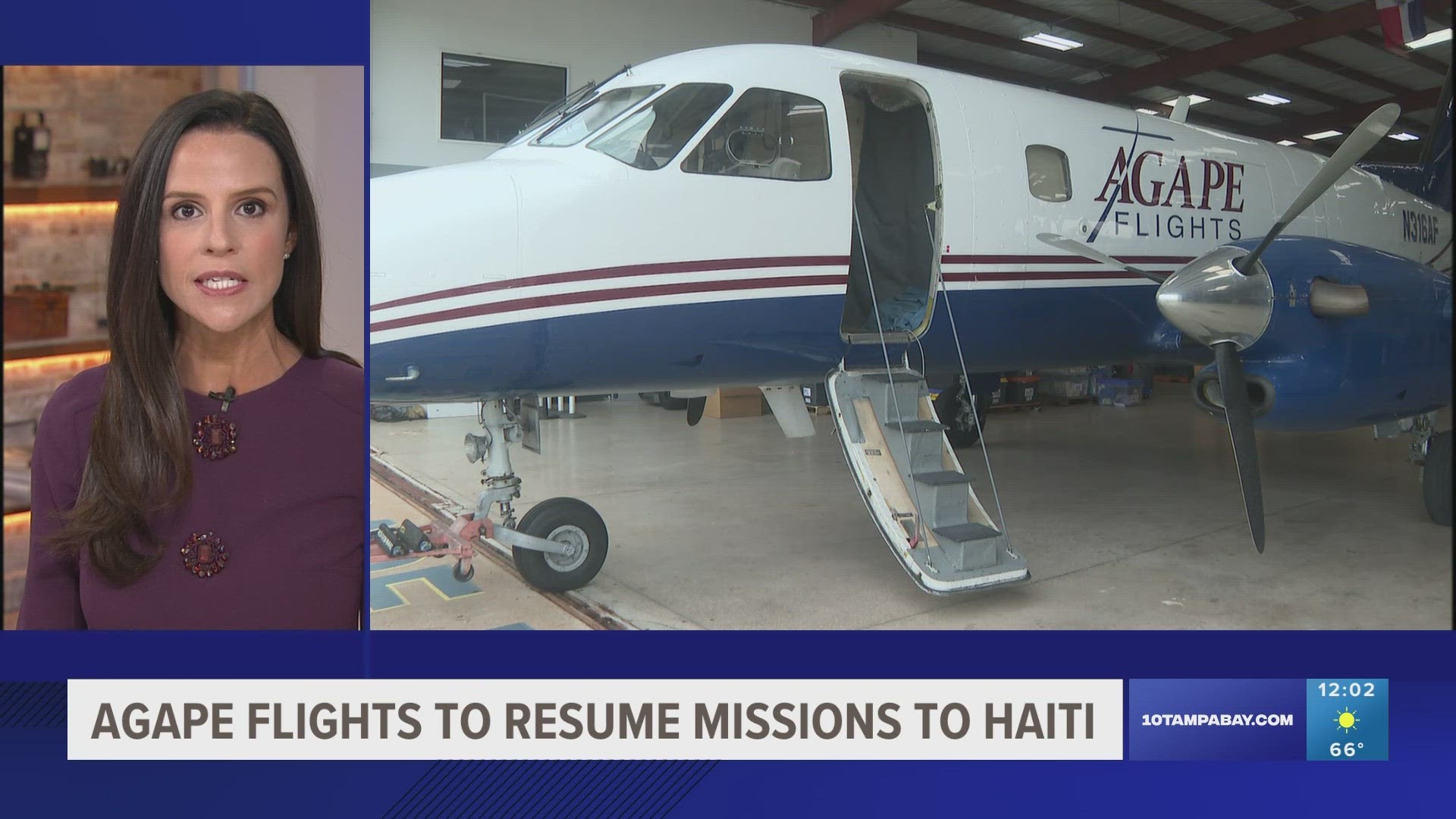ST. PETERSBURG, Fla. —
As state officials predict an increase in Haitian migrants headed to Florida, Gov. Ron DeSantis has brought up the idea of using taxpayer-funded flights to relocate them to other parts of the country.
“We do have our transport program, also. That’s going to be operational,” he said. “So, Haitians land in the Florida Keys? Their next stop very well could be Martha’s Vineyard.”
During an appearance on a talk radio show, DeSantis said he assigned state resources to South Florida to intercept Haitian migrants trying to illegally enter the U.S. by crossing the ocean.
He said if migrants are apprehended before reaching land, they can be "repatriated" to Haiti. However, if they reach land, the U.S. government would need the approval of the Haitian government to accept deportees.
“For a maritime state like us, that’s why we really have to get them before they reach the shores, and that’s why we’re working so hard to do that,” DeSantis said.
Migrants are also able to seek asylum status once they are on U.S. soil, a process which can take up to a year to get started.
"It's a super complex process to seek asylum in the U.S. and for people who are trying to arrive by sea, the first barrier that they face is if they are intercepted on the water," said Kennji Kizuka, Director of Asylum Policy at the International Rescue Committee. "They are very likely to be repatriated directly back to Haiti without any real opportunity to apply for asylum."
The first flight that sparked controversy picked up migrants from Texas and took them to Martha’s Vineyard in September 2022. Since then, the Florida legislature created and has expanded the "Unauthorized Alien Transport Program" to allow state funding for transporting migrants without legal status from anywhere in the country to a “sanctuary city.”
Critics of the program have stood against using money generated by Florida taxpayers to fund affairs and activities conducted entirely outside the state.
Over the past two months, Haitians – particularly in the capital of Port-au-Prince – have been facing a sharp increase in gang violence that’s forced resources to run low and thousands to become displaced. Attacks on prisons, law enforcement agencies and the international airport have left innocent families without much defense.
Kizuka said Haitian migrants have historically had a difficult time getting approved for asylum status because much of the criteria has to do with persecution based on a certain aspect of a migrant's identity, as opposed to the presence of extreme violence where they live.
"I think a lot of that has to do with a lack of legal representation and just a misunderstanding of the conditions in Haiti," he said. "Sometimes U.S. immigration law doesn't recognize their circumstances as one in which they would be eligible for asylum, even though they face a really grave risk of death or serious harm if they were returned to Haiti."
On Wednesday, the United Nations called on countries like the U.S. to expand the criteria for granting refugee protections for Haitian migrants, to make the process of seeking asylum more accessible to those fleeing the country.
Gang violence in Haiti has grown as an issue, particularly since the assassination of President Jovenel Moïse in 2021, which led to political instability in the country. According to a database put together by Syracuse University, the number of asylum cases
Gang leaders have organized to call for the current prime minister to step down. Last week, he agreed to resign once a council is created to set up presidential elections. Caribbean countries are currently working together on creating a transitional council as the prime minister has been in Puerto Rico since the beginning of March.
On March 8, a federal judge upheld a program created by the Biden administration allowing a specified number of Haitian migrants legal status as asylum-seekers if they have a family member or sponsor in the United States. People from Cuba, Nicaragua and Venezuela are also eligible to apply to the program, which grants them a work permit and the ability to remain in the U.S. for two years. It's referred to as a humanitarian parole program.
Migrants apply for the program online before coming to the U.S. and are only given legal status if that application is approved.

